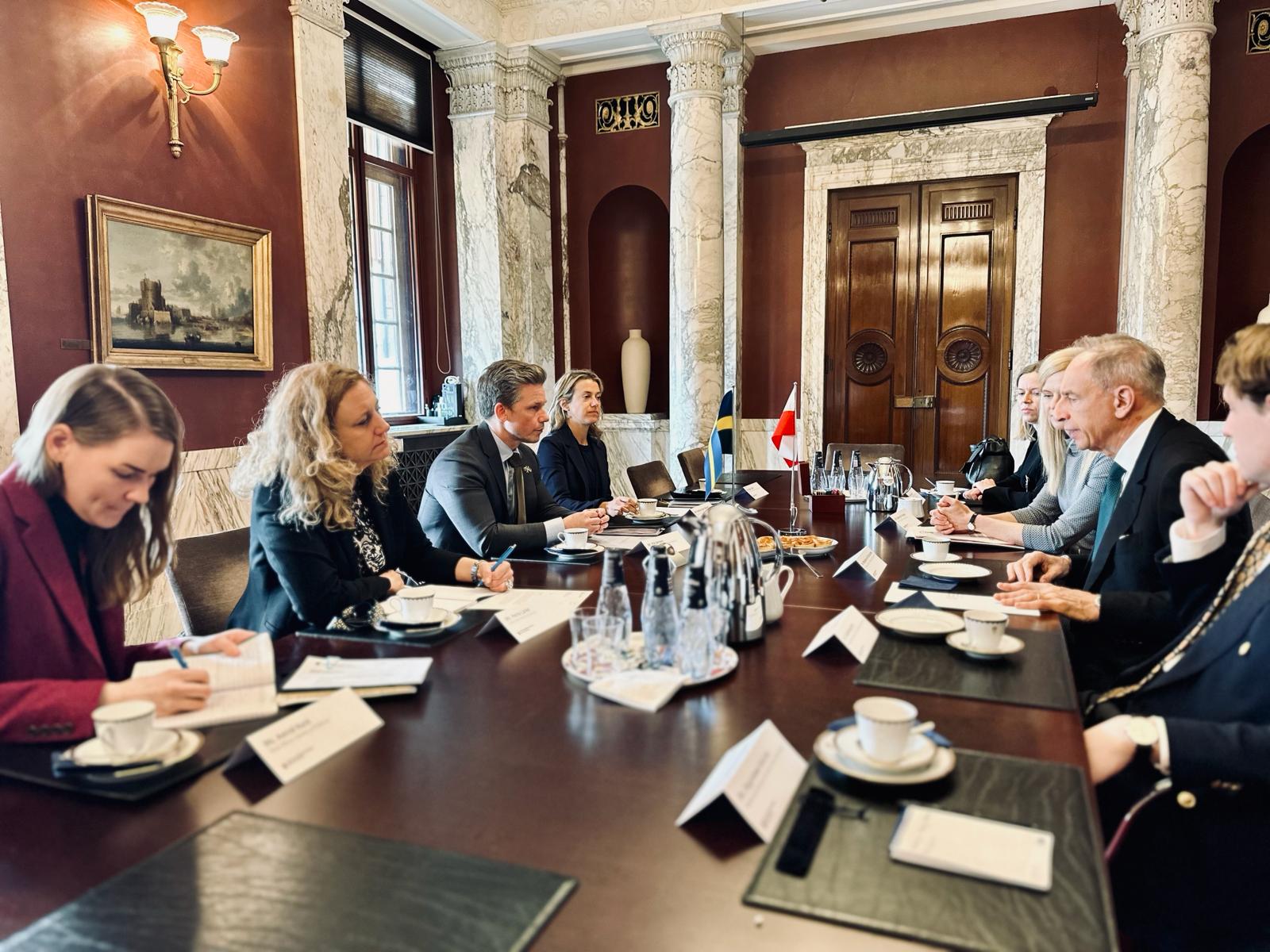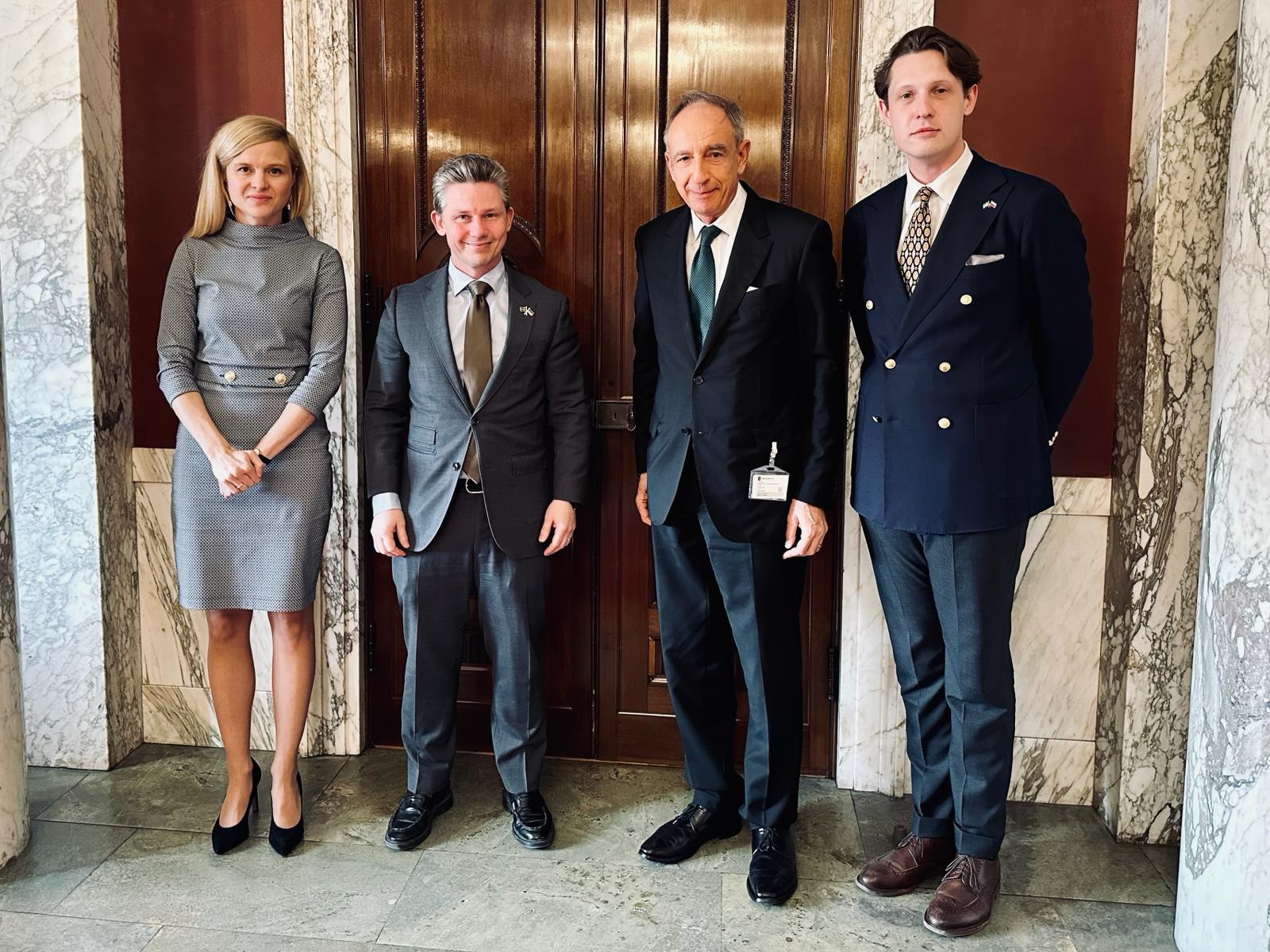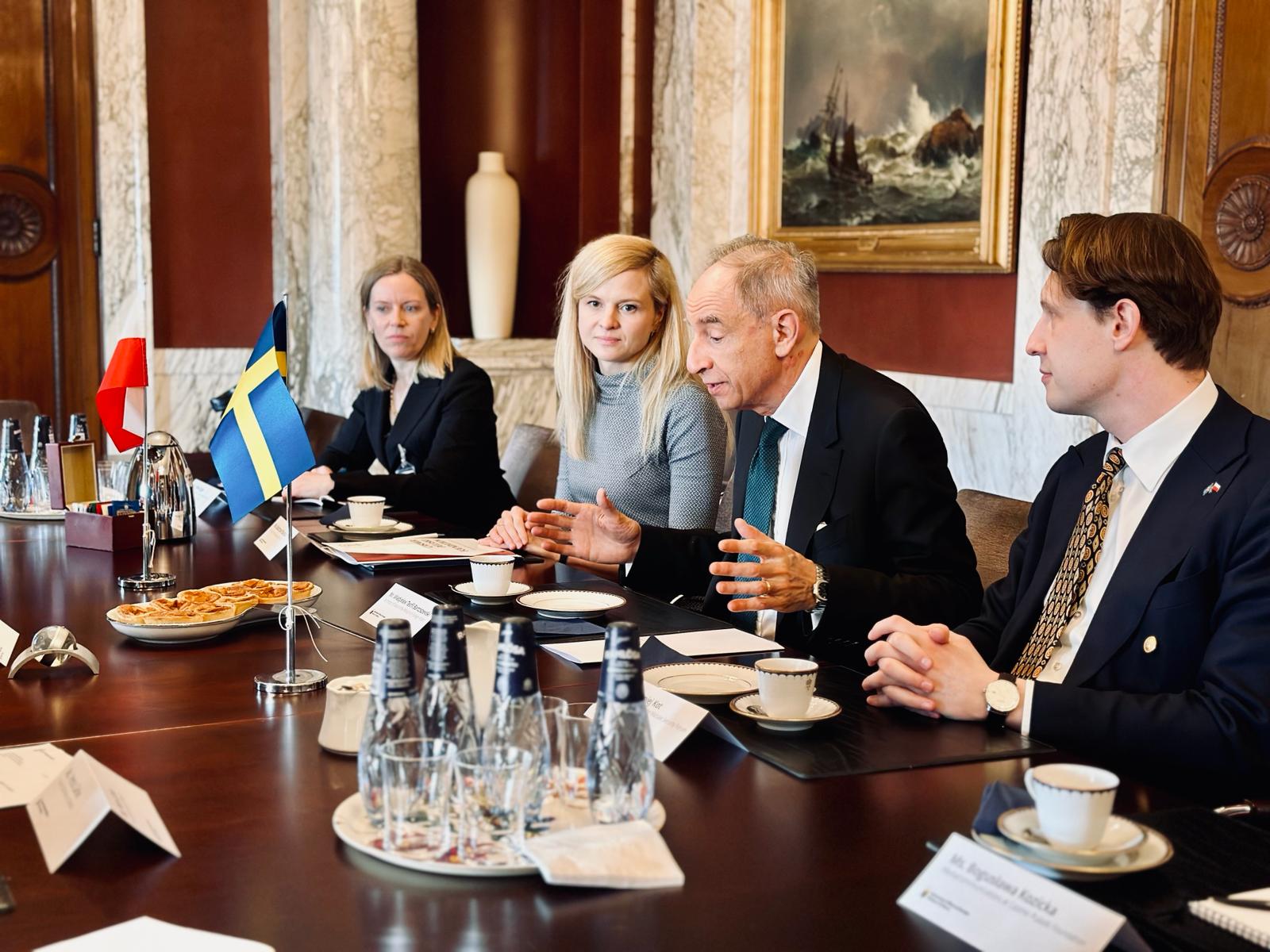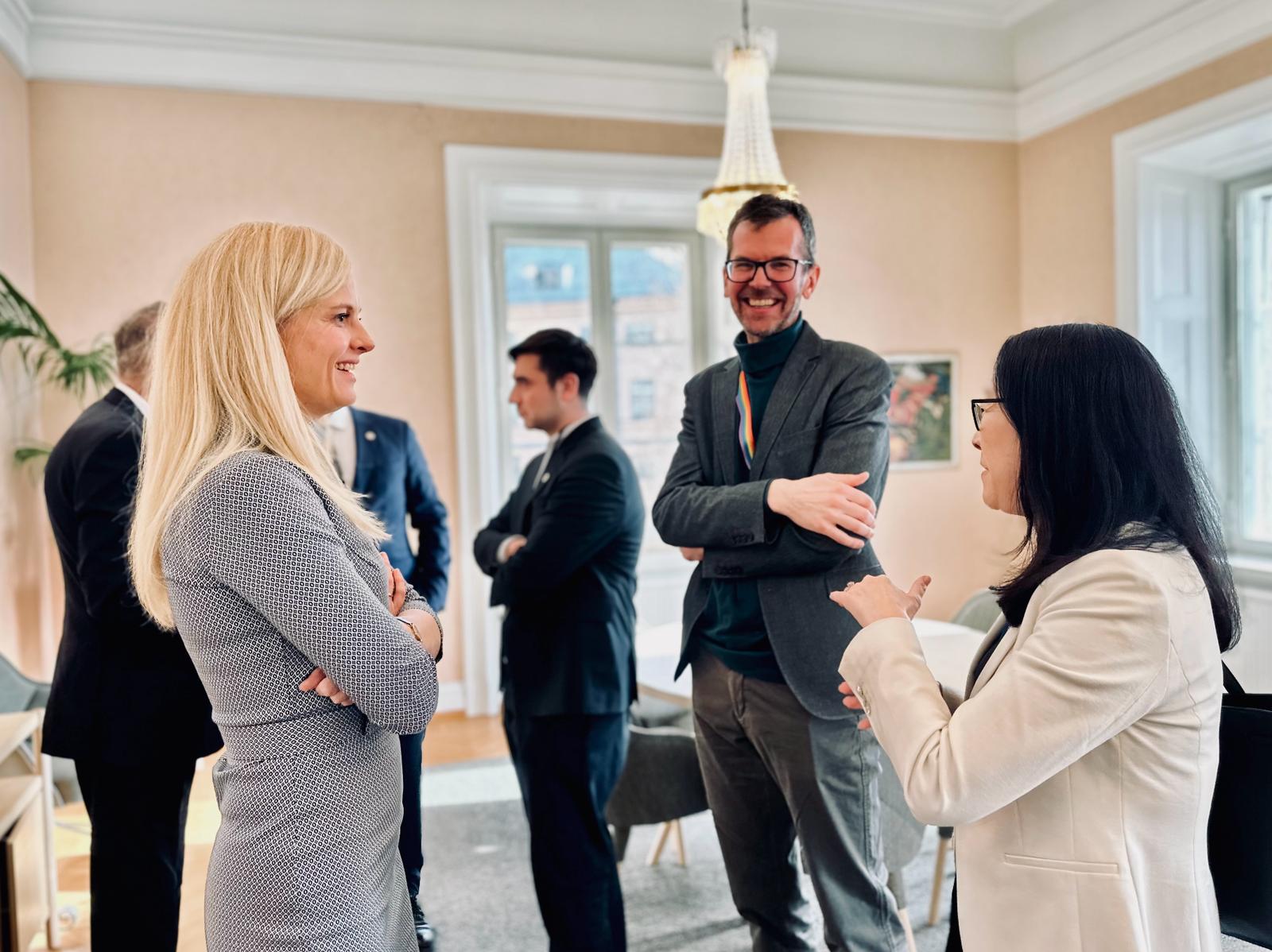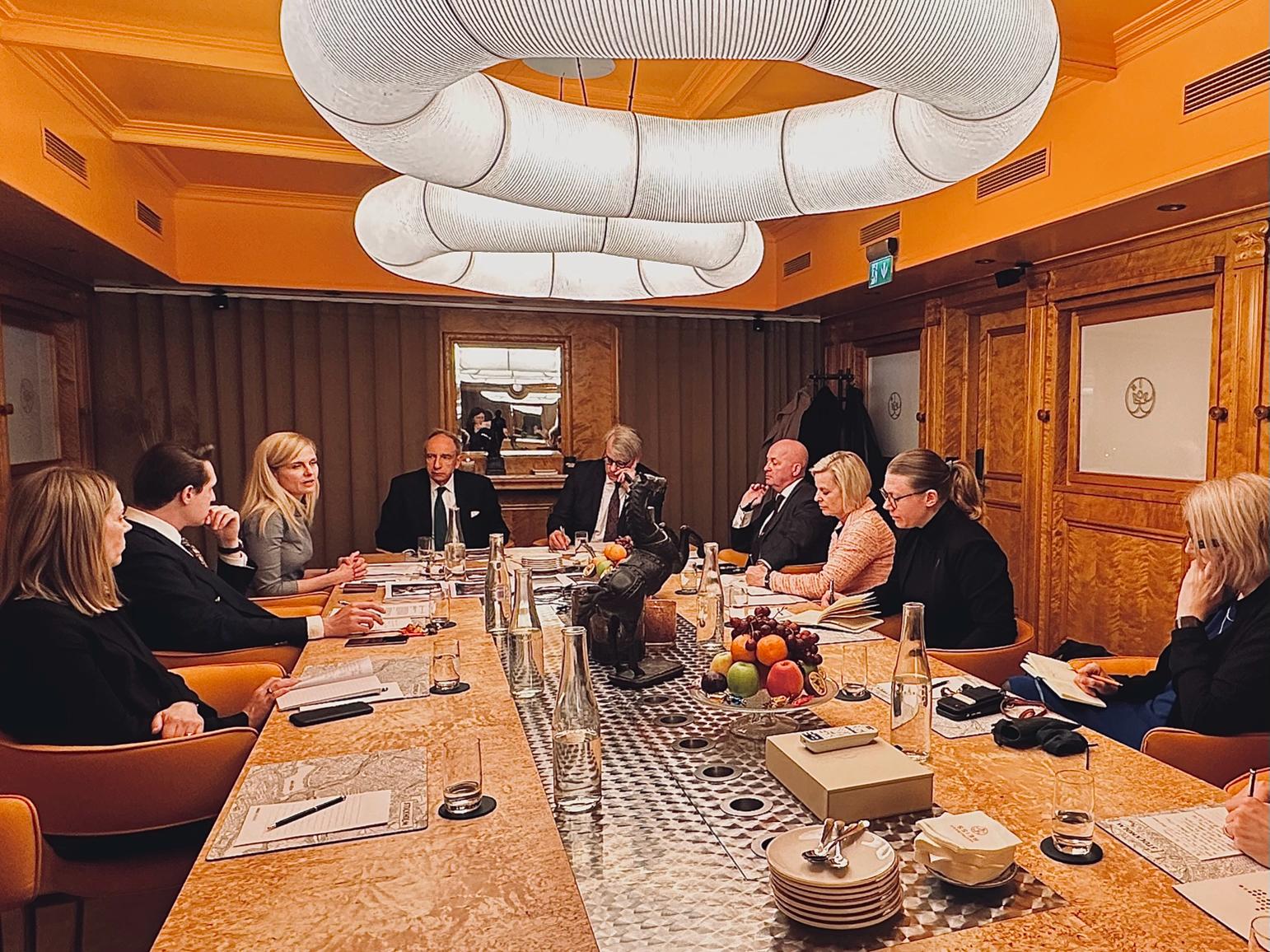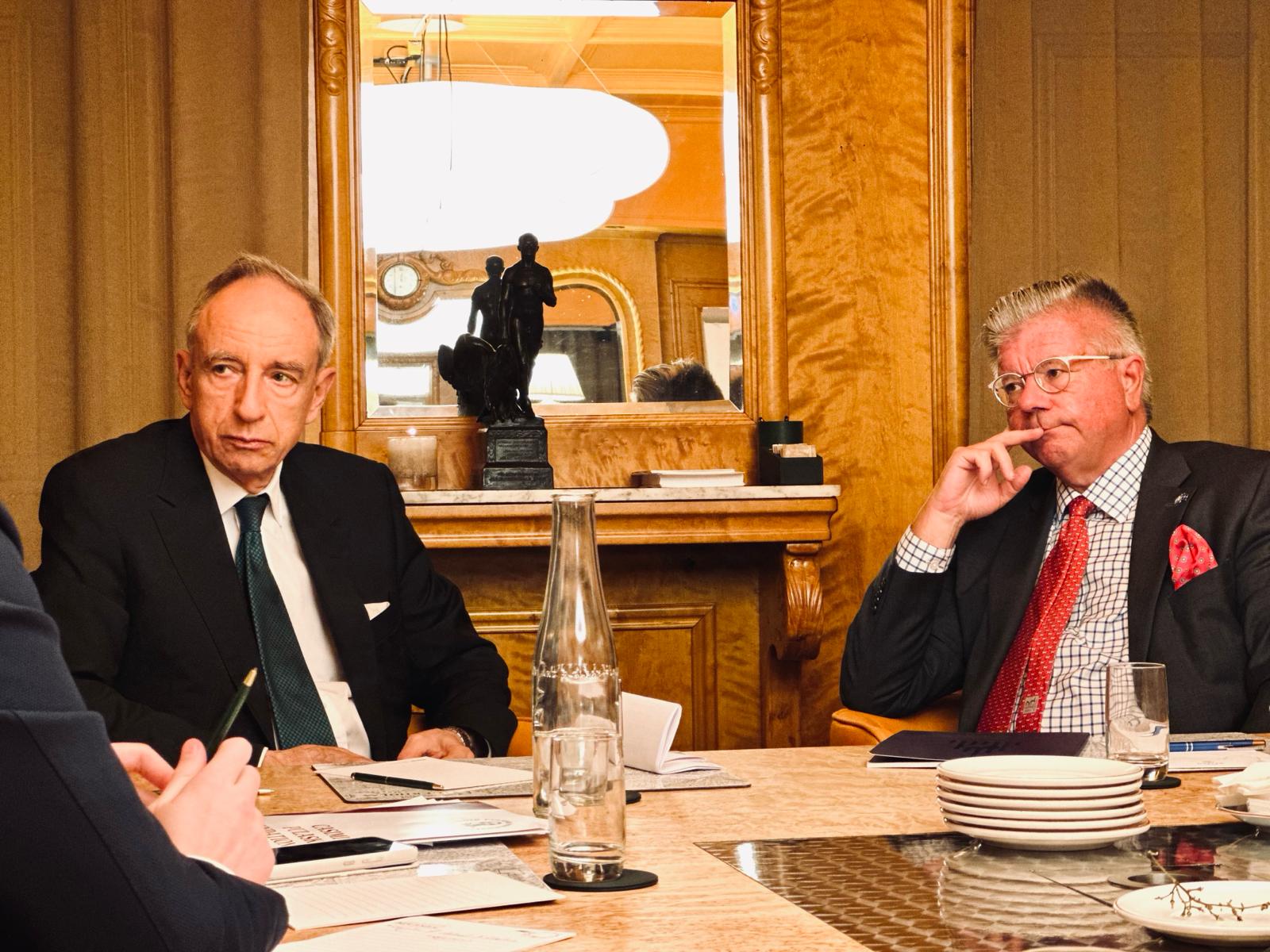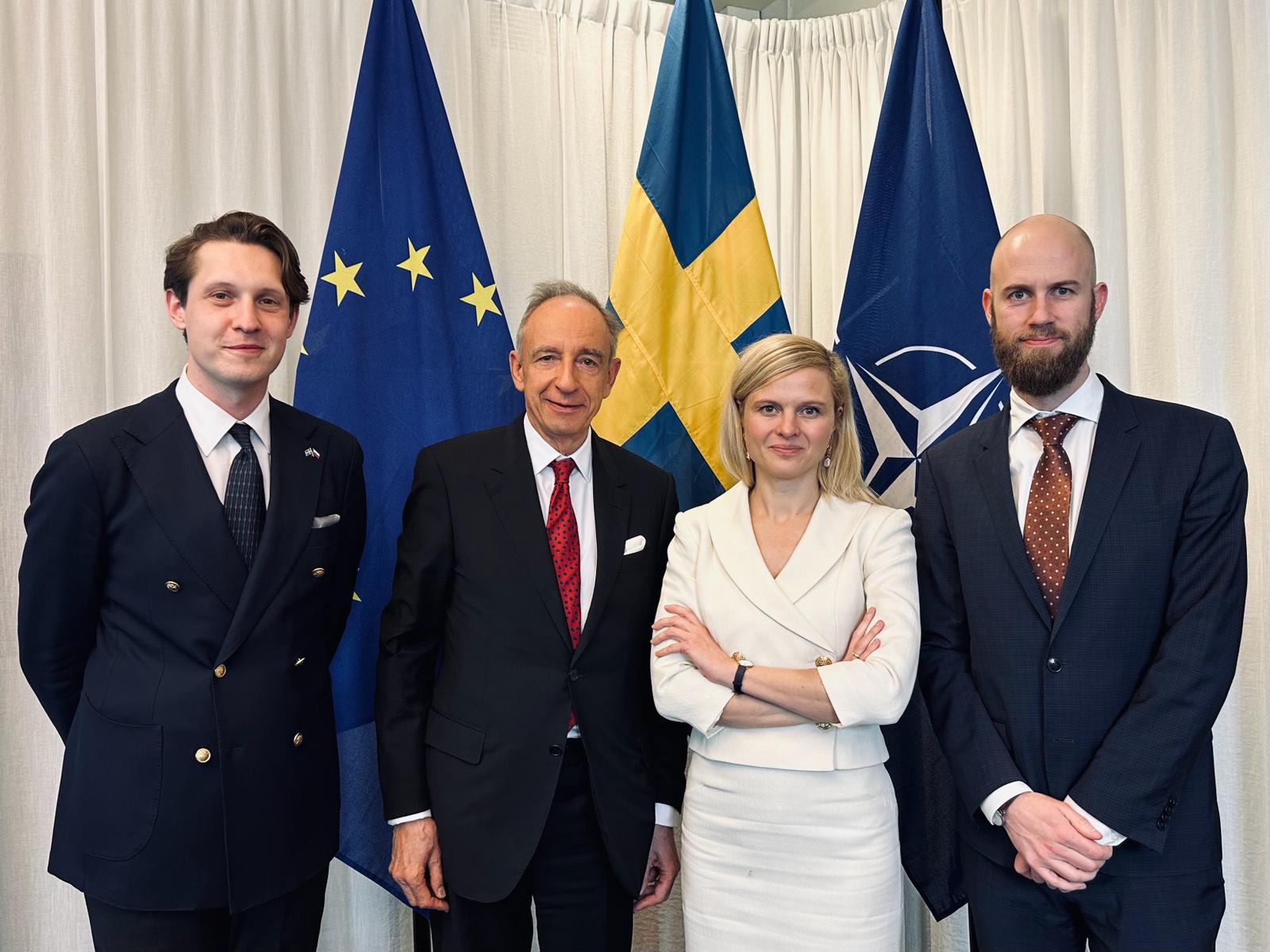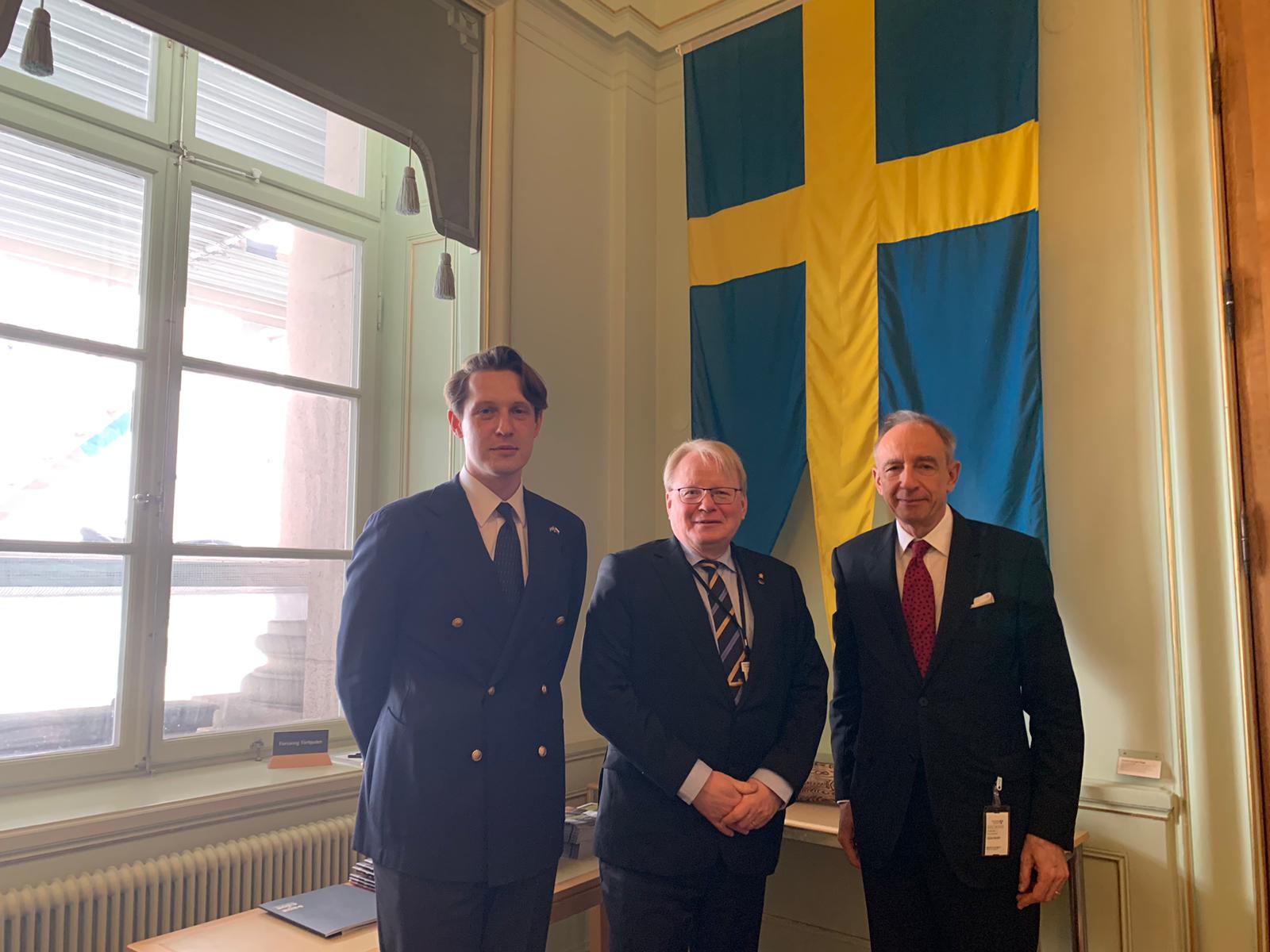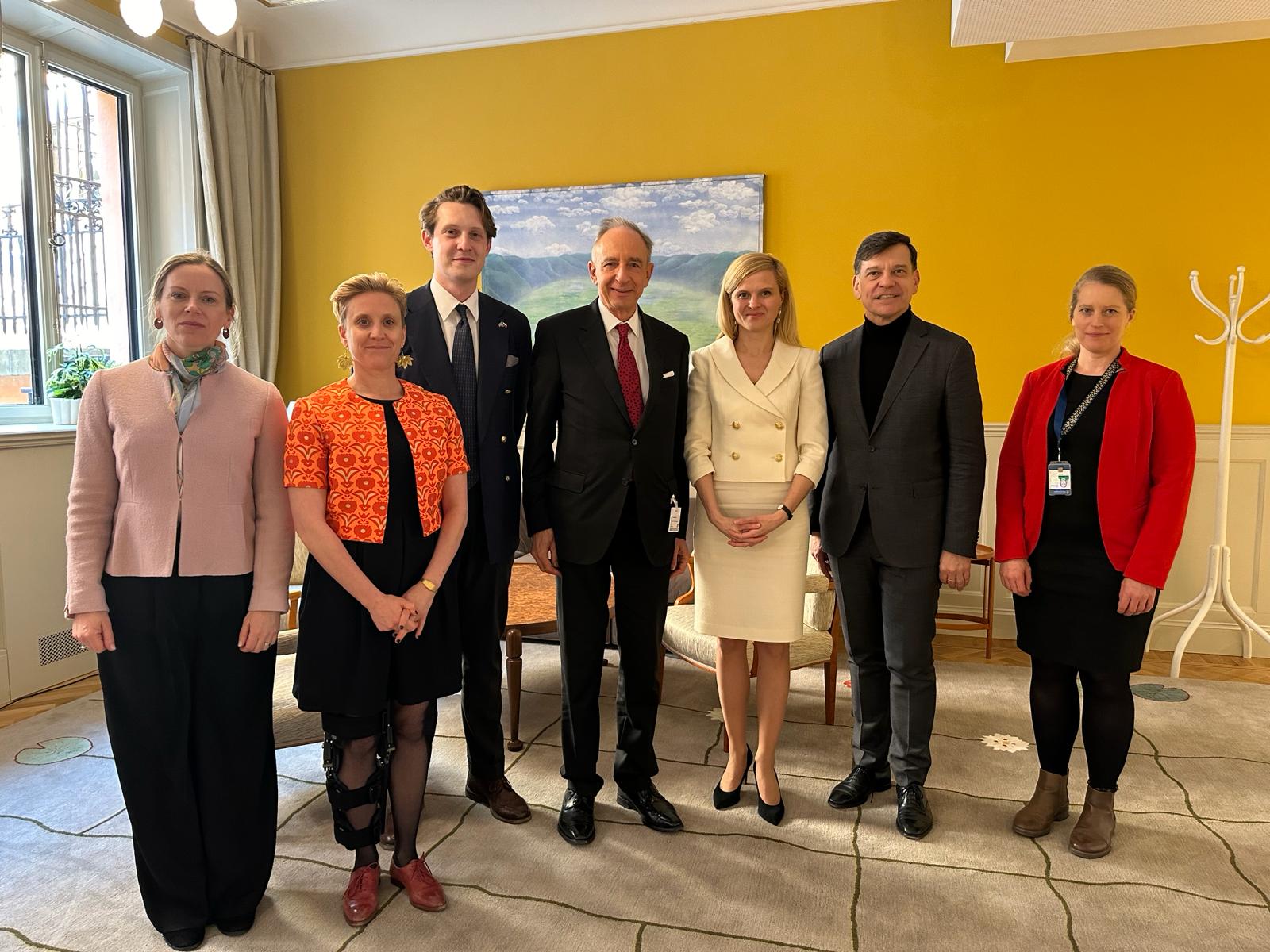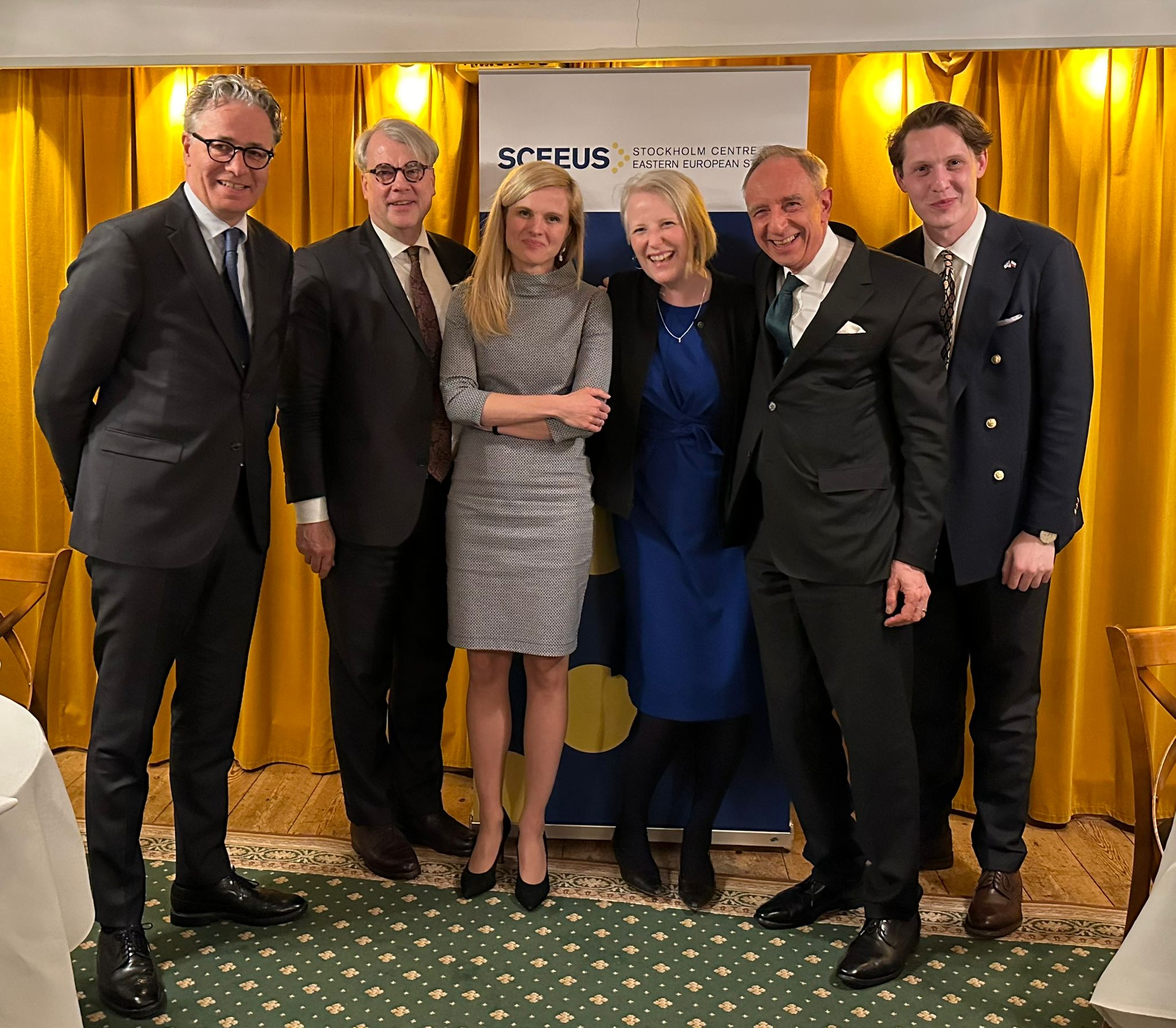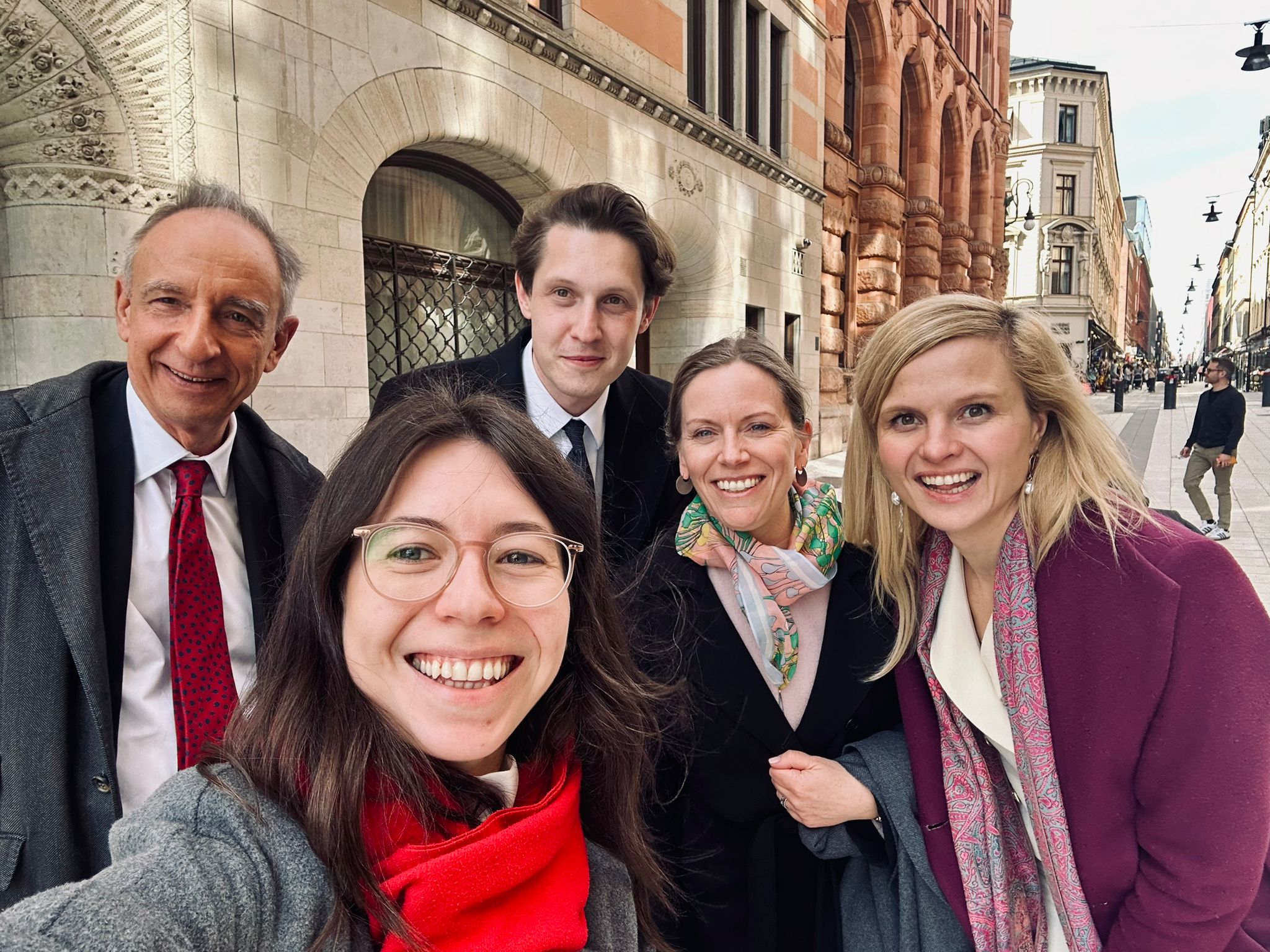High-level delegation to Stockholm
High-level delegation to Stockholm
Last week Warsaw Security Forum organized a high-level delegation to Stockholm, to hold ministerial-level meetings. Their aim was to discuss the security situation in the region and the preparations for this year’s edition of the #WSF2024. The Polish side was represented by the Secretary of State at the Polish Ministry of Foreign Affairs, Władysław T. Bartoszewski, the Chair of the WSF, Prof. Katarzyna Pisarska, and the Program Director of WSF, Bartłomiej Kot. In Stockholm, the delegation met with high-ranking representatives of the Swedish government and parliament, including:
- Pål Jonson – Minister of Defence, Sweden
- Aron Emilsson MP – Chair, Committee on Foreign Affairs, Swedish Riksdag
- Alexandra Völker MP – Member of Committee on Foreign Affairs, Riksdag
- Hans Wallmark – Chair, Committee on European Union Affairs & Chair, The Riksdag Delegation to the NATO Parliamentary Assembly
- Carl-Oskar Bohlin – Minister for Civil Defence
- Henrik Landerholm – National Security Adviser, Sweden
- Joanna Hofman – Ambassador of Poland to Sweden
We also co-organized the roundtable with the Stockholm Centre for Eastern European Studies
- Fredrik Löjdquist – Director SCEEUS
- Anna Wieslander – Director for Northern Europe, Atlantic Council
- Mike Winnerstig – Head of the Security Policy Department, Swedish Defence Research pisarsAgency
- Charlotta Rodhe – Deputy Director, SCEEUS
- Johan Engvall – Analysts, SCEEUS
- Stefan Ingvarsson – Analysts, SCEEUS
- Martin Kragh – Analysts, SCEEUS
As our last activity the Chair of the WSF prof. Katarzyna Pisarska had a pleasure talking with Tobias Billstrom, the Swedish Minister of Foreign Affairs, about Sweden’s membership in NATO and our partnership during this year’ 11th edition of the Warsaw Security Forum.
Energy Security as the Foundation for a Just Transition in Post-Industrial Regions
The transformation of post-industrial regions toward sustainable, low-emission economies hinges on one critical factor: energy security. This theme, explored during a high-level panel discussion at the last edition of the Warsaw Security Forum, highlighted the need to transition from coal and other high-emission energy sources to cleaner alternatives such as renewable and nuclear energy. Achieving this shift will require not only technological innovation but also strategic planning, international cooperation, and robust regulatory frameworks.
Polish presidency in the EU: a chance for a sustainable energy transition
The evolving landscape of decarbonization and energy security, with its profound regional and global implications, business operations in Poland. ORLEN is eager to engage in discussions about energy transition and the EU regulations required to facilitate it. The company has prepared a position paper highlighting the key challenges: preserving the competitiveness of the EU market, championing technological neutrality, ensuring access to decarbonization financing, and shifting away from overly prescriptive regulatory approaches.
WSF2024: Summary
The 11th edition of the Warsaw Security Forum (WSF), held on October 1-2, 2024, successfully brought together 2,600 participants from 90 countries, 30 governmental delegations, and over 250 speakers to address critical issues surrounding European and transatlantic security. With 1 million combined online views and over 14,000 live viewers, the WSF reaffirmed its importance as a leading platform for security dialogue in Europe.
